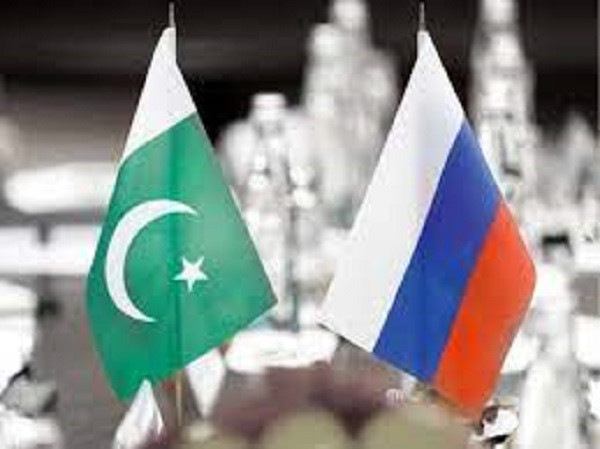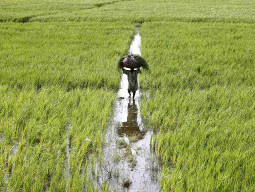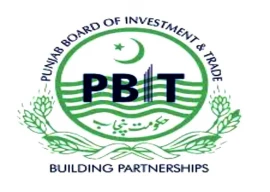
Pakistan will hold discussions with Russia next week to deepen economic ties and invite investment for financing infrastructure projects, including the three schemes that were earlier pitched for Chinese funding.
The three-day-long discussions will be held at the platform of Pakistan-Russia Intergovernmental Commission (IGC) amid persistent challenges to find a legal way to avoid the international financial sanctions against Moscow for doing business with it.
Pakistan has not yet been able to come up with an alternative payment method after Russia exited SIWFT – an international payment system used to settle financial transactions.
Power Minister Sardar Awais Leghari will lead the delegation for three-day discussions in place of Minister for Economic Affairs Ahad Khan Cheema, who is the IGC co-chairman. It is the ninth IGC meeting, which is taking place after almost two years.
Government sources said that there was heavy economic, commercial and trade agenda that both sides would take up to deepen ties. Meetings are taking place a week after the president of Belarus, an ally and friend of Moscow, visited Islamabad and signed a number of agreements and memoranda of understanding (MoUs).
Sources said that during the preparatory meetings it emerged that Pakistan did not have a viable alternative plan to do business with Russia in the presence of US and European Union sanctions. However, India is doing business with Moscow despite the embargo.
Pakistan's stated policy is that it is not part of any western or Asian bloc and wants to do business with all countries, except for India and Israel.
Pakistan will discuss the possibility of establishing correspondent banking relationship with Moscow amid reluctance of local banks due to the fear of western sanctions.
There will be discussion on a payment mechanism for the settlement of financial transactions. One of the options is to establish and maintain cooperation between Exim banks of both countries.
Pakistan also wants to hold negotiations on an agreement for the avoidance of double taxation and the prevention of fiscal evasion between the tax authorities of both sides. However, Russia is not interested in signing the pact despite repeated Pakistani requests.
Pakistan, which has received major Chinese investments for infrastructure projects worth around $6.5 billion, is now pitching numerous schemes for Russian investment.
The government is planning to seek Russian financing for the Sukkur-Hyderabad Motorway (M-6) project, which is the only missing link between the Peshawar and Karachi motorway. China has built the Multan-Sukkur section under CPEC.
It will also pitch the Gwadar-Hoshab-Awaran-Khuzdar Motorway (M-8) project for Russian investment. Earlier, the government tried to get Chinese funding for the project.
Another road project called the Kharian-Rawalpindi motorway is also listed for discussion during next week's meetings.
During the eighth IGC meetings, both sides flagged issues that were hampering the smooth implementation of an agreement on international transport.
Pakistan is seeking Russian money for upgrading the Quetta-Taftan railway line. It may ask for funding the Diamer-Bhasha Dam, which had earlier been offered to Saudi Arabia and China. Chiniot Dam and the Attaabad hydropower project are also listed for discussion.
The energy sector has remained a priority between the two nations but no major breakthrough could be achieved in the past. Sources said that Pakistan would again seek to buy Russian crude oil and liquefied natural gas (LNG) at discounted prices.
The issue of finalising the much-delayed Pak Stream Gas Pipeline (PSGP) project is part of the next week's agenda. Technical teams of both sides have remained engaged with each other to finalise the legal draft of a shareholders' agreement. The project has been hit by US sanctions.
Islamabad also wants to pitch the project for upgrading Pakistan Refinery Limited and is seeking Russian investment in offshore oil and gas exploration.
In the area of commerce, Islamabad desires to develop and sign a five-year (2025-30) roadmap for trade and economic cooperation. It will propose an increase in trading of halal meat products.
The government once again plans to operationalise barter trader to address the cash payment issue. However, it does not have sufficient export potential to settle payments for LNG and crude oil imports from Russia.
The agenda entails an expansion in product coverage under the Unified System of Tariff Preferences of the Eurasian Economic Union to include products of Pakistan's export interest.
The government may ask for signing an MoU for Cooperation in Trade Promotion between the Moscow Export Centre and the Trade Development Authority of Pakistan.
Discussions will be held on a draft MoU between the Federal Customs Service Russia, the Iran Customs Administration and the Federal Board of Revenue.
The government will propose joint ventures for the production of organic fertiliser and setting up a new steel mill. Earlier, the Pakistan Muslim League-Nawaz (PML-N) government closed the Russian-made Pakistan Steel Mills in June 2015.
Pakistan will request for Russian investment in electric vehicle, solar energy, mobile devices and surgical equipment sectors as well as wants to sign the Framework Agreement on Industrial Cooperation.
It is keen to cooperate in the field of corporate farming through establishing a joint venture. But the area where the government is seeking foreign investment does not have water supply for agriculture.
This week Pakistan and Belarus inked a number of MoUs and agreements. These include an MoU between the Financial Monitoring Unit and the Financial Intelligence Unit of Belarus concerning cooperation in the exchange of financial intelligence related to money laundering. They also signed agreements on extradition and the mutual protection of classified information.


















COMMENTS
Comments are moderated and generally will be posted if they are on-topic and not abusive.
For more information, please see our Comments FAQ